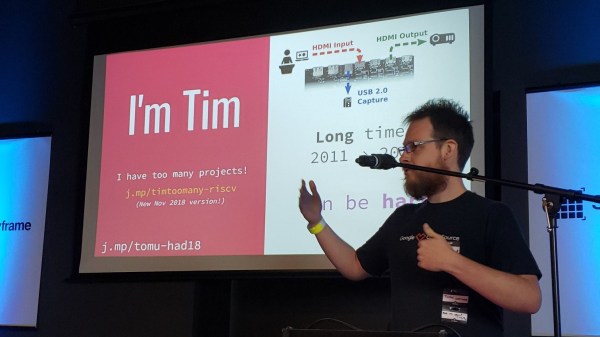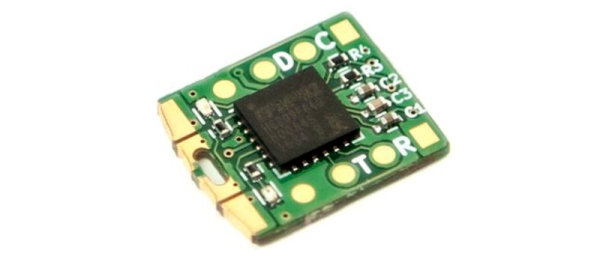Looking for a ultra tiny development board? Tomu is an ARM Cortex M0+ device that fits inside your USB port. We’ve seen these in person, and they’re tiny.
There’s a few commercial devices in this form factor on the market. For example, the Yubikey Nano emulates a keyboard to provide codes for two-factor authentication. The Yubikey’s tiny hardware does this job well, but the closed-source device isn’t something you can modify.
Tomu is a new device for your USB port. It sports a Silicon Labs EFM32 microcontroller, two buttons, and two LEDs. This particular microcontroller is well suited to the task. It can talk USB without a crystal for timing, and has an internal regulator to generate the core voltage from a 5 V USB supply. Since it supports DFU firmware updates, it can be reprogrammed without any special tools.
Unfortunately, the EFM32 device lacks secure storage options, so the Tomu might not be the best device to keep your secrets on. That being said, it will be interesting to see what applications people come up with. The creators have suggested using the device for media buttons, sleeping and waking a computer, and as a U2F key.
The project is currently available on CrowdSupply, and all design files and source is available on their Github. If you like soldering tiny things, the twelve-part bill of materials should be fairly easy to assemble at home.












